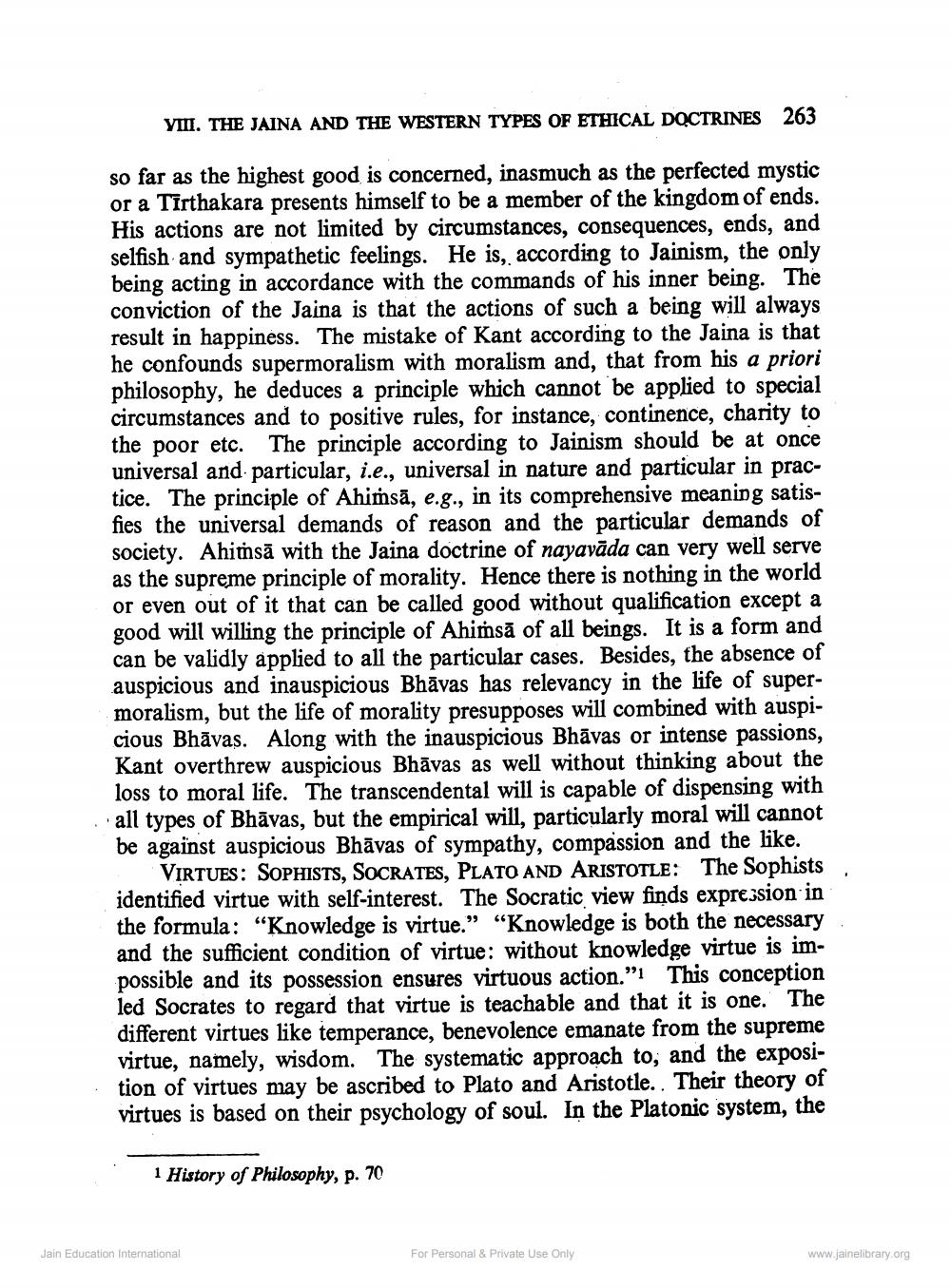________________
VIII. THE JAINA AND THE WESTERN TYPES OF ETHICAL DOCTRINES 263
so far as the highest good is concerned, inasmuch as the perfected mystic or a Tirthakara presents himself to be a member of the kingdom of ends. His actions are not limited by circumstances, consequences, ends, and selfish and sympathetic feelings. He is, according to Jainism, the only being acting in accordance with the commands of his inner being. The conviction of the Jaina is that the actions of such a being will always result in happiness. The mistake of Kant according to the Jaina is that he confounds supermoralism with moralism and, that from his a priori philosophy, he deduces a principle which cannot be applied to special circumstances and to positive rules, for instance, continence, charity to the poor etc. The principle according to Jainism should be at once universal and particular, i.e., universal in nature and particular in practice. The principle of Ahimsā, e.g., in its comprehensive meaning satisfies the universal demands of reason and the particular demands of society. Ahimsā with the Jaina doctrine of nayavāda can very well serve as the supreme principle of morality. Hence there is nothing in the world or even out of it that can be called good without qualification except a good will willing the principle of Ahimsă of all beings. It is a form and can be validly applied to all the particular cases. Besides, the absence of auspicious and inauspicious Bhāvas has relevancy in the life of supermoralism, but the life of morality presupposes will combined with auspicious Bhāvas. Along with the inauspicious Bhāvas or intense passions, Kant overthrew auspicious Bhāvas as well without thinking about the loss to moral life. The transcendental will is capable of dispensing with all types of Bhāvas, but the empirical will, particularly moral will cannot be against auspicious Bhāvas of sympathy, compassion and the like.
VIRTUES: SOPHISTS, SOCRATES, PLATO AND ARISTOTLE: The Sophists, identified virtue with self-interest. The Socratic view finds expression in the formula: "Knowledge is virtue." "Knowledge is both the necessary and the sufficient condition of virtue: without knowledge virtue is impossible and its possession ensures virtuous action.”! This conception led Socrates to regard that virtue is teachable and that it is one. The different virtues like temperance, benevolence emanate from the supreme virtue, namely, wisdom. The systematic approach to, and the exposition of virtues may be ascribed to Plato and Aristotle.. Their theory of virtues is based on their psychology of soul. In the Platonic system, the
1 History of Philosophy, p. 70
Jain Education International
For Personal & Private Use Only
www.jainelibrary.org




